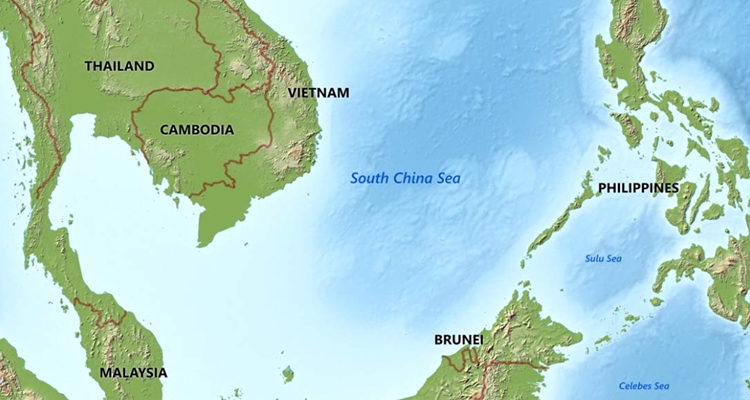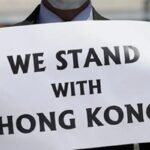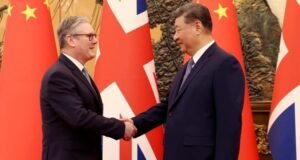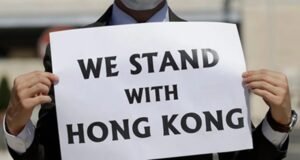
The Vietnamese ambassador to India says that the countries of the South China Sea need “more diplomatic engagement” in order to solve the problem of China’s bullying in the South China Sea (“growing assertiveness,” in an agency-feed phrase). China continually harasses the Philippines and others in the area (“South China Sea: More diplomatic engagement needed, says [Vietnam ambassador],” Zeebiz, May 2025).
Interacting with reporters at the Foreign Correspondents Club here, Vietnam’s Ambassador to India Ton Sinh Thanh, however, asserted that “whatever belongs to Vietnam has to be defended”….
“China is not just a big country, but also a big neighbour. The South China Sea is a complicated problem and related not just to the island but also the exclusive economic zone. However, we do not have any other way [out of this problem] than through talks and negotiations.
“We should not move to a situation where we have to involve in a conflict. We need more diplomatic engagement and legal measures to solve this problem,” Thanh said in response to a question on Vietnam’s position on the South China Sea issue.
“Our position on this issue is very clear. We have already entered into a declaration with China as regards the code of conduct in the South China Sea. Hope there would be support from other countries, inside and outside of the region,” he said.
China claims sovereignty over all of South China Sea, a huge source of hydrocarbons. However, a number of ASEAN member countries, including Vietnam, the Philippines and Brunei, have counter claims.
“But, of course, we have to be prepared. Whatever belongs to Vietnam, we have to defend. We have to defend our island and the exclusive economic zone,” the envoy said.
So according to Ambassador Ton Sinh Thanh, the region needs “more diplomatic engagement and legal measures” to solve the problem of China. On the other hand, Vietnam “needs to be prepared” to defend itself. In case what? In case China continues to regard diplomatic engagement and legal measures as irrelevant in the South China Sea except insofar as these can be used to manipulate and confuse other governments.
The legal measures have already been enacted that would solve the problem of China’s continuous invasions of the exclusive economic zones of other countries. One of the measures is the establishment of exclusive economic zones. By international agreement, the exclusive economic zone of a country is subject to the governance only of the country whose EEZ it is. The Chinese government couldn’t care less.
Now what? Another international agreement to affirm the same reasonably enough demarcated zones would be pointless. We must keep in mind the aspect of the situation that the Chinese government couldn’t care less about these international agreements. These agreements have got nothing to do with them, in their view.
Thanh is a diplomat, and diplomats often tout the value of diplomacy after diplomacy has proved fruitless. But he also acknowledges that, “of course,” Vietnam must be prepared to defend itself. He thus refutes his own assertion that talks and negotiations are the only way to go.
Also wrong: “The South China Sea is a complicated problem.” Perhaps some of the claims and counterclaims about this or that island or patch of water are complicated. But the problem isn’t the difficulties of negotiating between parties who are willing to negotiate about a disputed territory or at least put up with a peaceful standoff in relation to that territory. The problem is China’s aggression.
Also see:
StoptheCCP.org: “The Spratly Agenda”
StoptheCCP.org: “Japan to the Rescue in the South China Sea?”
“Oddly enough, everyone in territorial disputes with China is negotiating, but no one is getting anywhere.”
StoptheCCP.org: “China, the Crazy Neighbor Who Just Won’t Leave People Alone”
“The risks of testing China’s will to escalate may not be as great as we think.”












